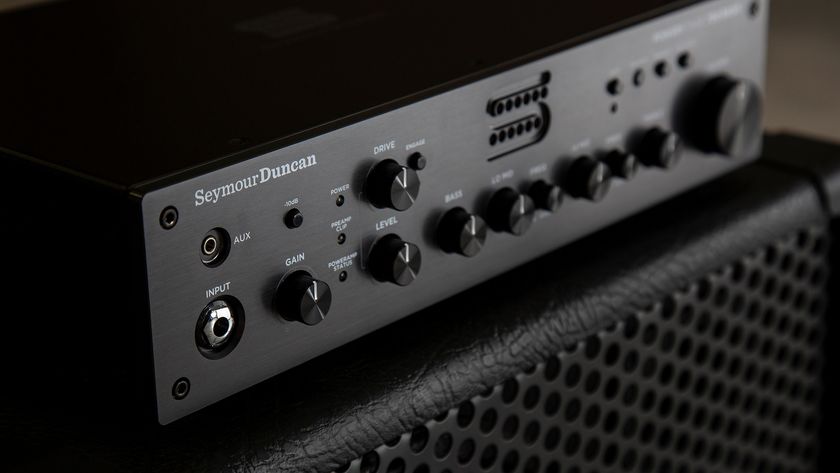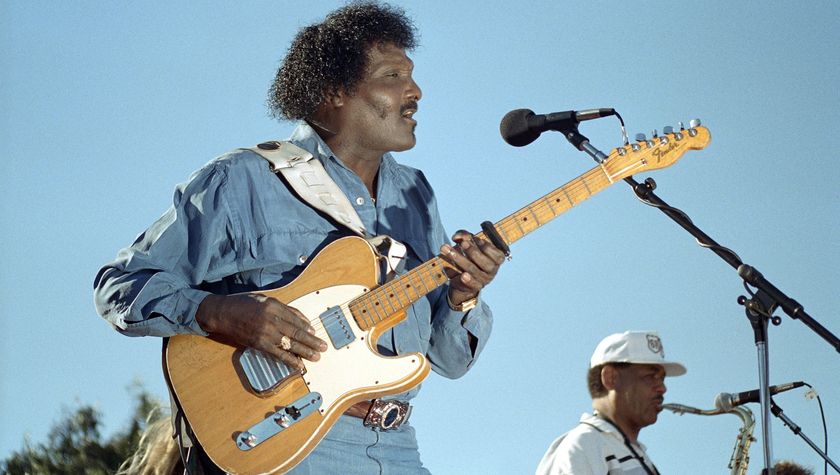Interview: Rains Frontman Jeff Rains on the Songwriting Behind the 'Stories'
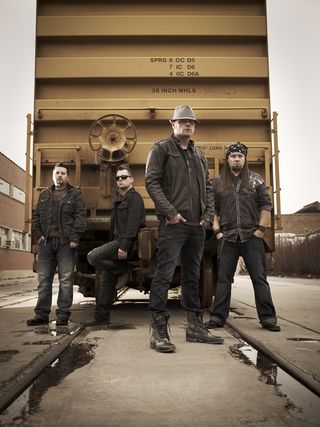
When Jeff Rains began his professional journey into the music industry 12 years ago, it was equal parts ambition and naivete.
Both were important catalysts that enabled him to push forward as an independent artist during a time when major label record deals were still considered part and parcel of any artist’s success.
Fast-forward to 2012, and Rains, the band, is reaping that success with their self-released album, Stories, which yielded two hit singles, “Liar” and “Look In My Eyes.”
Jeff Rains began studying the craft of songwriting as a youngster, when his father put him up to the challenge of earning his first electric guitar via learning to play new songs every week. Working on assigned material gave Rains a musical education that seeped in as he began writing his own songs. Today, his approach is unique, as he describes in this interview.
GUITAR WORLD: You write music and lyrics at the same time. How does that process work?
Surprisingly, they have to work perfectly together at the same time in my head. I write songs in my head. I don’t touch a guitar, I don’t sing, I just write them in my head. I’ll write a song for a month, and when it’s all the way done, I’ll sit down with a guitar and actually play it for the first time. I only play it on acoustic until I get into the studio to record it, and then I build everything up from there. I don’t know how other people write. I know a lot of bands write together, which I think is weird. I can’t imagine sitting down with a band and saying, “All right, let’s write a song today.” I go through whatever process I go through.
It’s a lot of 3 in the morning waking up, rolling over and humming something into my cell phone or writing lyrics down or something like that. For the most part, it’s stored in my brain. The reason I try not to put it down anywhere physical is because I figure if it’s still stuck in my head a month later, then it’s a good song. If I come up with something and I never think about it again, then it probably wasn’t good.
Get The Pick Newsletter
All the latest guitar news, interviews, lessons, reviews, deals and more, direct to your inbox!
When did you discover songwriting and how did you hone your craft?
That was weird, actually, because when I was in school and I first started playing guitar, everybody I knew would learn three Nirvana songs and then write 20 of their own songs. But they’d only know three chords, and I thought, That doesn’t seem right. So I decided that I was going to learn as many cover songs as I could, and when I felt that I was ready and actually had enough knowledge, I would start writing my own stuff. It probably took me four years from the time I started playing guitar to when I started writing.
Which songs did you learn?
It’s kind of cool, because my dad bought me my first electric guitar and he said I didn’t have to pay him back for it if I learned a certain number of songs every week that he’d give to me. He’d give me a list of songs, whether it was Led Zeppelin or Garth Brooks, and I’d learn them and play them for him at the end of the week. While that was going on, I was obsessed with the whole Seattle grunge scene and Woodstock, so I was learning everything. At first, I couldn’t retain anything. Everything I learned I’d just forget. Then, all of a sudden, one day I could play whatever I wanted. I still don’t think I’m a good guitar player, but one day I could play everybody else’s songs perfectly. I remembered them all and it was a really weird thing. I guess it’s that eclectic background of music.
Did that help expand your songwriting vocabulary?
Oh yeah, 100 percent. Looking back on it now, I’m so happy about how everything went. At the time, I kind of got it but I didn’t really get it. He always had me learn really cool songs, so I never got bored. I think it had a huge influence on how I write. I listened to a lot of country music and I think that had a lot to do with my storytelling. A lot of the guitar riffs are very ’70s and a lot of the melodies are very ’90s Seattle grunge scene, so that seems like a really cool mix.
It’s funny playing these shows because a lot of people have heard of us now, but if they haven’t, they get this weird, head cocked, kind of confused, “This doesn’t make sense, this guy isn’t yelling and screaming, the music’s actually good, I can understand the lyrics.” I do a lot of fingerpicking, classical guitar stuff, and people always stare at my hands, then I switch back to a pick and I stand there onstage and watch them watch me, because I don’t think I’m doing anything cool. It’s just the way people talk about it, “This is interesting.”
And yet you don’t consider yourself a good guitar player.
I don’t know how to read music. I just play off of what I hear, and I honestly don’t even know what my guitar is tuned to. I’ll be in the studio and the producer will say, “What key is this in?” Or “What time signature?” And I say,” I don’t know! If it’s a good song, just record the damn thing! I don’t give a crap what time signature it is. I don’t even know what that means! It sounds cool, doesn’t it?”
When you have your lyrical and musical starting point, do you usually stay the course or do the songs sometimes change direction while they’re being written?
Usually, if something is in my head, that means it’s catchy enough to stay there, so I let the song write itself. I always heard about everybody having their sophomore slump and all that stuff, and I finally figured out people have that because they have to rush their second record. If they have one hit, their record label says, “You’ve got to have another record out in eight months,” or whenever it is. I always liked the cool way of writing songs where they took three years to write an album, and every album got better and better because they took the time to write it instead of just putting something out there to make money. We’re at a little over two years that this album’s been out and I’ve been writing the whole time. I cannot wait for the next record, just because it’s good quality stuff and I think it’s going to be way better.
Does the songwriting drive the guitar parts or is it the other way around?
I think it’s the songwriting. I’m not one of those guys who sit and plays guitar all day. I barely even touch my guitar unless I’m in the studio or on tour. But I’ll write orchestra parts or drum parts or piano parts in my head. It all has to come together, so that’s when I wish I was a better musician, so that I could sit down and play what I’m writing in my head and not have to hum it to my wife. She’s a way better musician than I am. She sings and plays piano on my record, but I guess she never wanted to be a rock star or anything. She does studio stuff with me and comes out and watches. There was one show, when we were living in West Virginia, she played the whole show with us because I couldn’t find anyone else to hire. I had to con her. Other than that, she’s never done anything live with me.
How do you determine that a song is (a) complete and (b) good enough to release to the public?
I don’t. I only ever write the first and second verse and the chorus. I never write the bridge until I get in the studio. Whether it’s good or not or the public will like it — that’s the scariest part about this business. And the way I write, I put myself out there, I put my whole life out there, and it’s scary as hell. I realize that the more popular we got the more haters we got, too, so it’s kind of a weird thing. You try not to pay attention to it, but owning the record label that I’m on, I guess you have to have tough skin. I don’t read YouTube comments.
The thing is, too, when you’re touring a lot, people take videos with their cell phones, which is awesome, but cell phone video is never going to do a live show justice. People will judge you off that cell phone video that got put up on YouTube. I think the band was perfect and I sang great, but the video sounds like crap, so I stopped paying attention to that part of it. I can’t be obsessed with that. I can control our Facebook page and our Twitter, and if somebody puts something nasty up there, which they do, there is a delete button for a reason. But I don’t get upset about it anymore. It is what it is. If you have 10 people that hate you, you have 100 that love you, so it works out.
— Alison Richter
Alison Richter interviews artists, producers, engineers and other music industry professionals for print and online publications. Read more of her interviews right here.
Photos: Jeff Sciortino
Alison Richter is a seasoned journalist who interviews musicians, producers, engineers, and other industry professionals, and covers mental health issues for GuitarWorld.com. Writing credits include a wide range of publications, including GuitarWorld.com, MusicRadar.com, Bass Player, TNAG Connoisseur, Reverb, Music Industry News, Acoustic, Drummer, Guitar.com, Gearphoria, She Shreds, Guitar Girl, and Collectible Guitar.
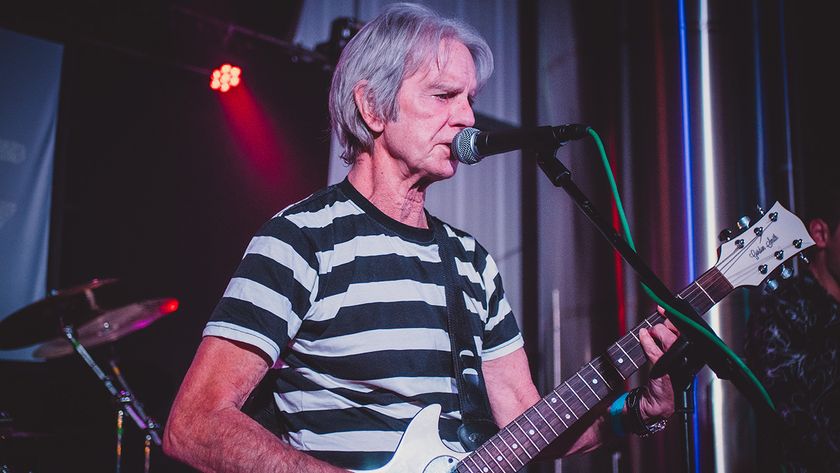
“I get asked, ‘What’s it like being a one-hit wonder?’ I say, ‘It’s better than being a no-hit wonder!’” The Vapors’ hit Turning Japanese was born at 4AM, but came to life when two guitarists were stuck into the same booth
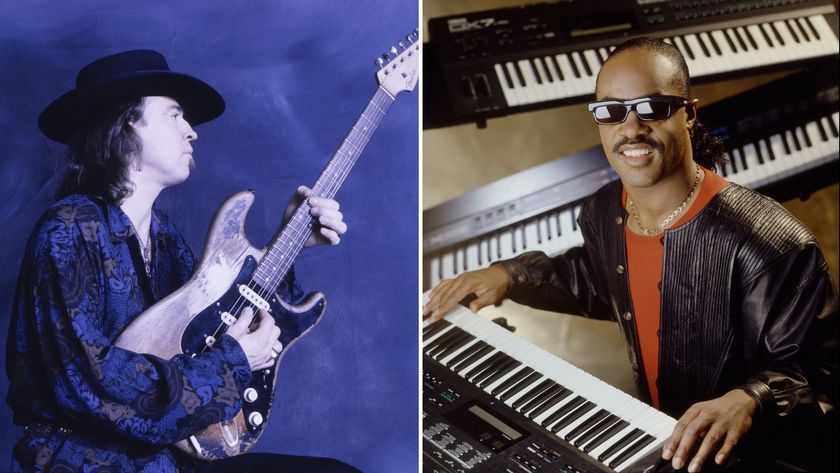
“Let's play... you start it off now, Stevie”: That time Stevie Wonder jammed with Stevie Ray Vaughan... and played SRV's number one Strat
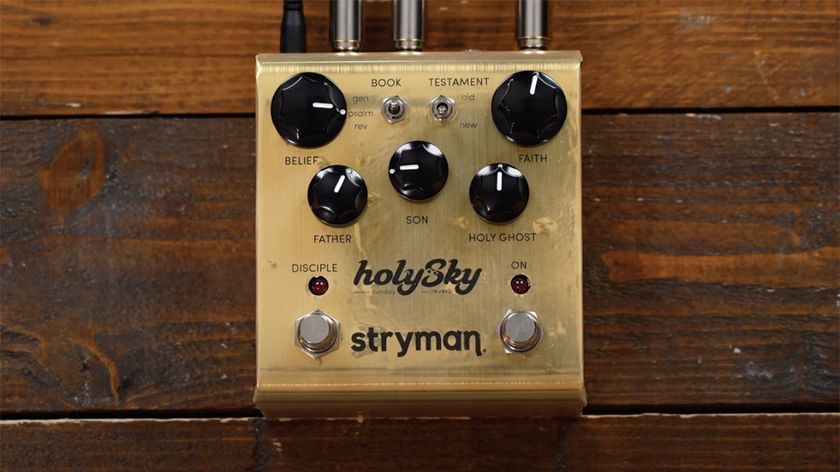
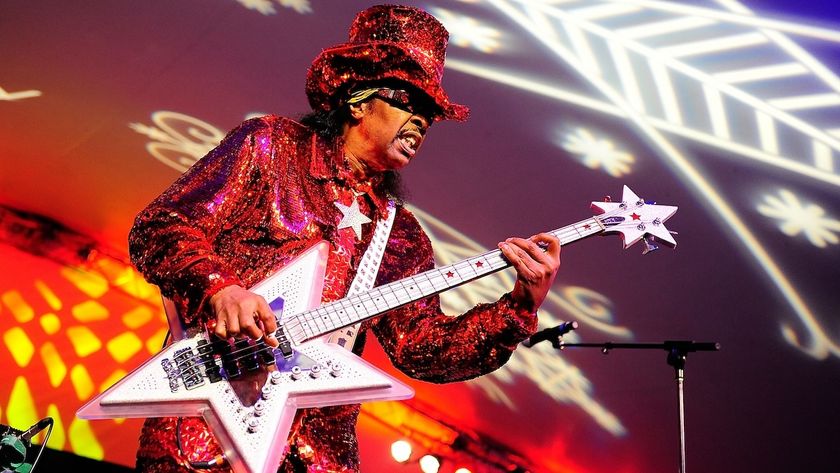
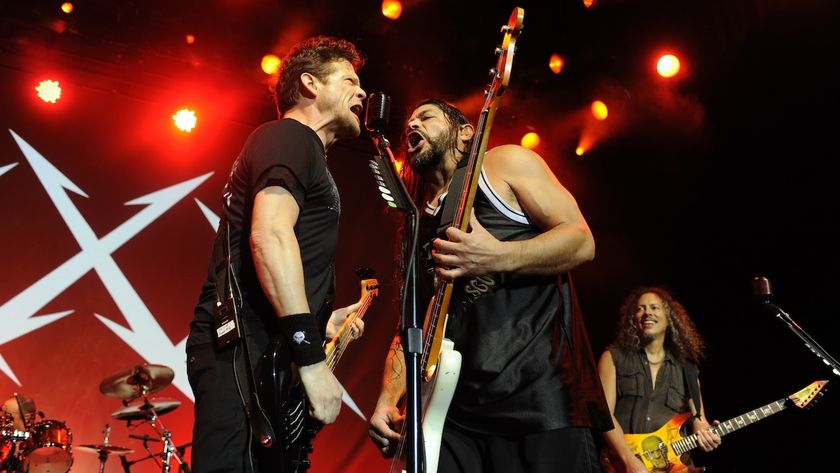
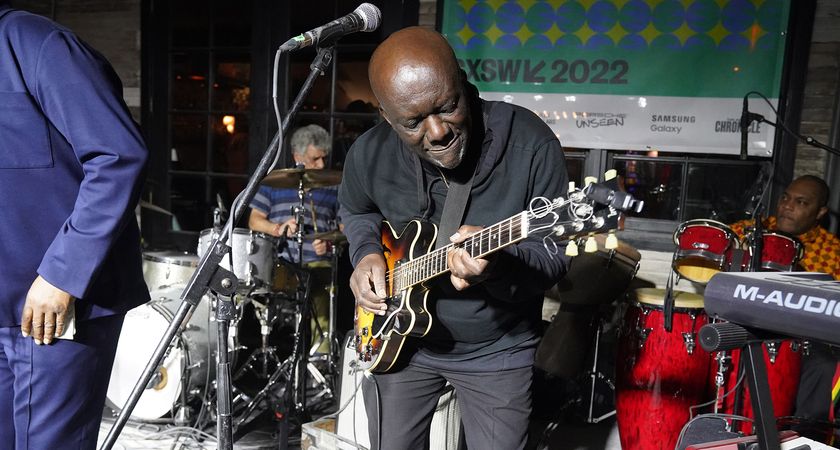
![[L-R] George Harrison, Aashish Khan and John Barham collaborate in the studio](https://cdn.mos.cms.futurecdn.net/VANJajEM56nLiJATg4P5Po-840-80.jpg)
